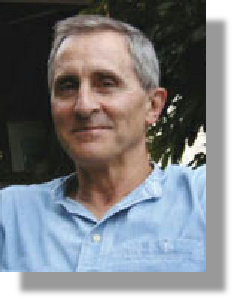The Tightrope Wedding (Smith/Doorstop)
Publ in Prop Magazine, April 2000
Michael Laskey's detailed domesticity laced with formative childhood memories
should be viewed with the comic and painful ambiguity highlighted in a cine-camera
version of his parents' wedding, mirrored in the final, title poem where the couple's
intersection is fearfully emblematic of their risk: a more arresting sense of human
courage and frailty than in the tacked-on shadows and doubts that diffuse the impact
of the book’s initial poem. Intervening episodes about cooking, gardening, landmarks
in parent-child relations, are mostly more than anecdotal. 'Kitchen sink' subject
matter is as cliché-ridden as romantic pastoralism once became, and Laskey challenges
us to write with discrimination about what's under our noses. There are also unsentimental
celebrations of partnership like The Couple, where the shared imagery of a coastal
walk implies what need not be stated. But the marriage poems that frame the book
are indicative: a detached standpoint, however intimate the material, gives rise
to more durable writing.
This paradox is indicated in Separations. Rhythmic and formal control suggest
a refusal to censure his father's furtive sexual disloyalty and departure yet run
counter to the welling up of painful recollection.
"Mum was there to collect me at close
of play. On my seat someone's stray
hairgrip I was quick to bury
in a pocket, so we wouldn't worry whose."
A final apologia for his technique along with other bashful if elegant disclaimers
is like a magician saying it was only a trick. At the close of The Knife, a familiar
object that comes startlingly alive through forgotten associations, he asks " Who'd
have thought it would come to matter/so much to me, this small knife/ you say now
you're not sure was yours ?" But Nude is undiluted: a confrontation of the unclothed
male body in all its flab and flimsiness, like Lear's realisation that 'Man's life'
without necessities is 'as cheap as beast's'.
The best poems of day-to-day routines surprise us. Passenger is one of
Laskey's craftily jocular narratives; but self-mocking anxiety over his son's driving
jolts him into contradictory emotions. The Light, mostly monosyllabic in two tight
stanzas, turns fury at a teenager's waste of electricity into a painful illumination
of lost tenderness as he rolls up the blind. Believing in Heaven is equally 'transformative'.
After a journey the demands and surroundings of home are renovated into a consoling
symphony; even leaves and the "whish" of a bird "make clear what it can be to hear."


